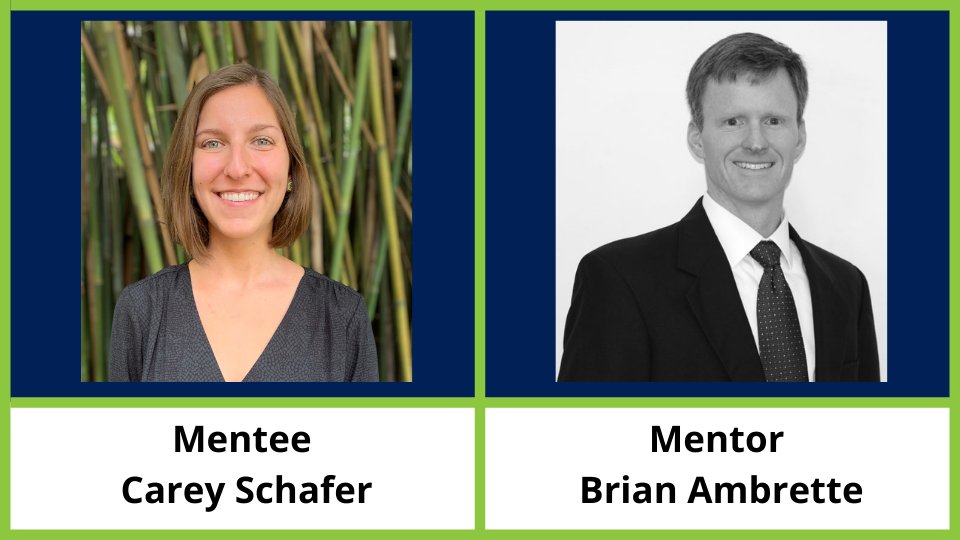MENTORSHIP SPOTLIGHT: Creating a Path Towards Long-Term Fulfillment
This Mentorship Program Spotlight highlights a mentee and mentor duo focused on long-term career visioning. Meet Mentee Carey Schafer and Mentor Brian Ambrette!
MENTEE Carey Schafer is a Project Coordinator with EcoAdapt where she manages knowledge exchange programming, including the National Adaptation Forum and the Climate Adaptation Knowledge Exchange (CAKEx). Prior to joining the EcoAdapt team, Carey completed a year-long fellowship with PLACE:SLR, a partnership that aims to increase resilience to sea-level rise throughout the northern Gulf of Mexico. In her free time, Carey enjoys eating at the many restaurants in the Seattle area, hiking, and (poorly) playing tennis with her partner, Jon.
MENTOR Brian Ambrette is a Senior Climate Resilience Coordinator with the Governor’s Office of Policy Innovation and the Future for the State of Maine. Brian helped develop the adaptation sections of Maine’s four-year climate action plan, Maine Won’t Wait and helped launch the Community Resilience Partnership, a state program that provides technical and financial assistance to municipal and tribal governments for climate action. In his free time, Brian enjoys racing triathlons, cooking with his wife, and hiking the woods of Maine with his dog.
One of the major motivations for Carey pursuing the mentorship program was to have the time and space to discuss long-term career visioning. Carey and Brian discussed the fact that in our day-to-day work, we don’t often have the time to consider longer-term career goals and what we envision for ourselves in the future. ASAP’s Mentorship Program provided this space and time, allowing Carey and Brian to explore what their versions of success look like in the field of adaptation.
A main thread through their mentorship conversations has been identifying work that provides fulfillment and enjoyment. Carey admitted that it is often hard for her to differentiate between work she genuinely enjoys and work she is simply good at doing. During one of their calls, Brian helped her sort through tasks she enjoyed versus those she was good at but didn’t enjoy to clarify what tasks and jobs could lead to longer-term job-related fulfillment.
In addition, Brian helped Carey organize a number of informational calls with professionals across the field of adaptation. Carey found that hearing about what Brian and others liked or found challenging about their positions helped clarify her long-term career goals.
Overall, the mentorship program has been an extremely valuable experience. Through Brian’s mentorship and insight, Carey feels much more clear-headed and confident about what she wants and hopes to achieve in the long term as an adaptation professional.

